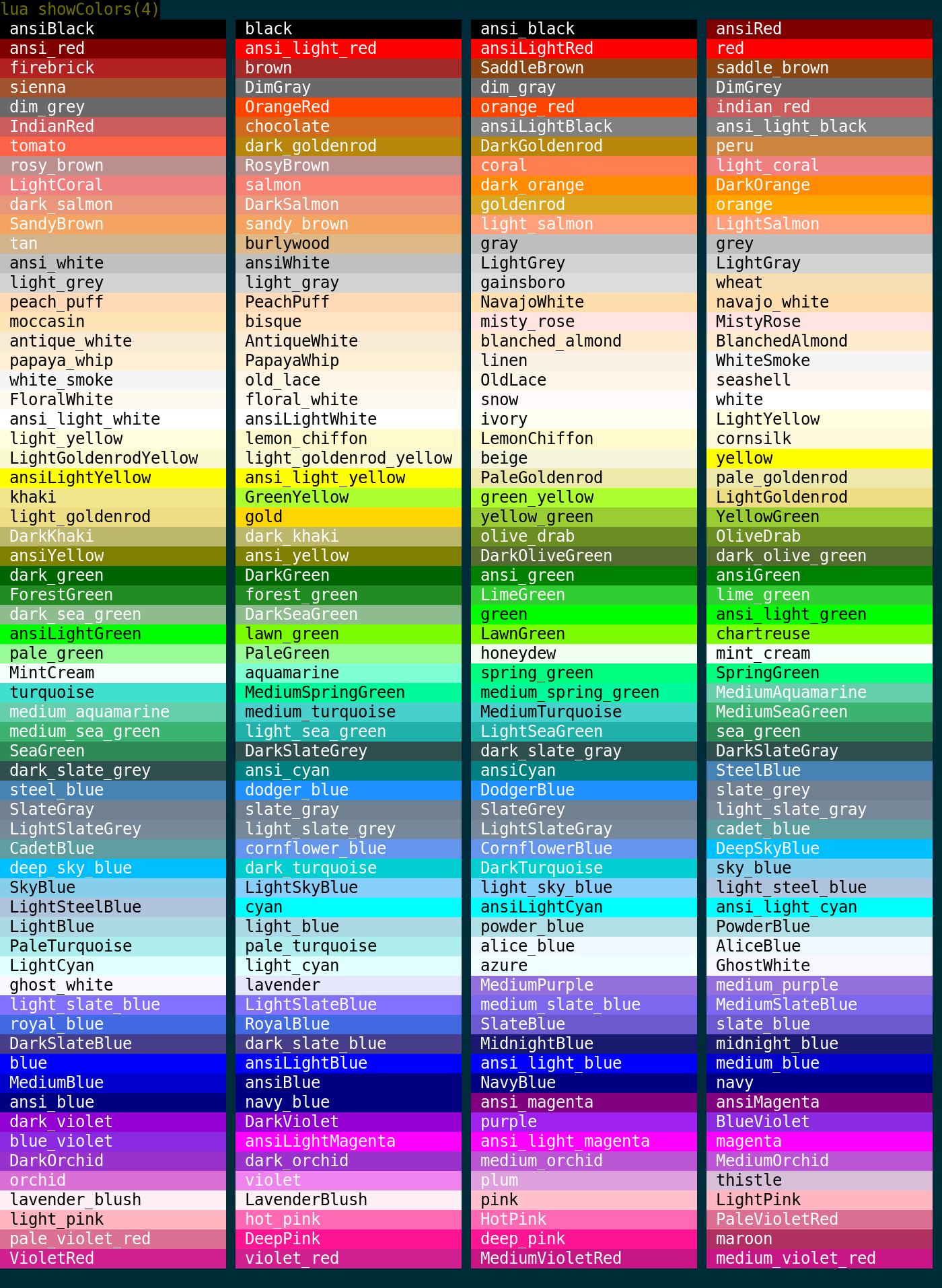Manual:Display Functions
Revision as of 03:51, 14 October 2014 by Vadi (talk | contribs) (→showColors: updated for filterColor argument in 3.0)
Display Functions
A collection of functions for displaying or formatting information on the screen.
display
- display(value)
- This function will do it's best to show whatever you ask it (a number, string, table, function). This function can be useful for seeing what values does a table have, for example. Note that this doesn't handle recursive references and will loop infinitely at the moment (Mudlet 2.0-test4). If a value is a string, it'll be in single quotes, and if it's a number, it won't be quoted.
- Example
<lua> -- ask it to display a table display({a = "somevalue", 1,2,3}) -- or some other target display(target) </lua>
showColors
- showColors(columns, filterColor)
- shows the named colors currently available in Mudlet's color table. These colors are stored in color_table, in table form. The format is color_table.colorName = {r,g,b}.
- See Also: bg(), fg(), cecho()
- Parameters
- columns:
- Optional: number of columns to print the color table in. Passed as a number.
- filterColor:
- Optional: limits the display to only certain colours that contain this word.
- Example
<lua> -- display as four columns: showColors(4)
-- show only red colours: showColors("red") </lua> The output for this is:
wrapLine
- wrapLine( windowName, lineNumber )
- Wrap line lineNumber of mini console (window) windowName. This function will interpret \n characters, apply word wrap and display the new lines on the screen. This function may be necessary if you use deleteLine() and thus erase the entire current line in the buffer, but you want to do some further echo() calls after calling deleteLine(). You will then need to re-wrap the last line of the buffer to actually see what you have echoed and get you \n interpreted as newline characters properly. Using this function is no good programming practice and should be avoided. There are better ways of handling situations where you would call deleteLine() and echo afterwards.
- Example
<lua> --This will effectively have the same result as a call to deleteLine() but the buffer line will not be entirely removed. --Consequently, further calls to echo() etc. sort of functions are possible without using wrapLine() unnecessarily.
selectString(line,1); replace(""); </lua>
